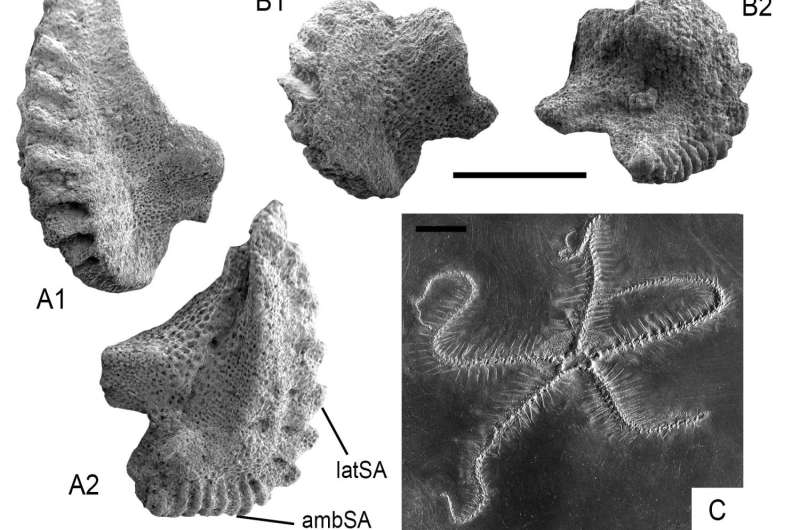Paleozoic echinoderm hangover: Waking up in the Triassic

The end-Paleozoic witnessed the most devastating mass extinction in Earth's history so far, killing the majority of species and profoundly shaping the evolutionary history of the survivors. Echinoderms are among the marine invertebrates that suffered the most severe losses at the end-Permian extinction.
At least that was the consensus until a team of European paleontologists—Ben Thuy, Hans Hagdorn, and Andy S. Gale—cast a critical eye on some poorly studied Triassic echinoderm fossils. The fossils turned out to belong to groups that supposedly went extinct by the end of the Paleozoic.
Some ancient echinoids, ophiuroids, and asteroids had slipped the bottleneck and coexisted with the ancestors of modern-day sea urchins, brittle stars, sand dollars, and relatives, for many millions of years. These echinoderm hangovers occurred almost worldwide and had spread into a wide range of paleo-environments by the late Triassic.
This discovery challenges the fundamentals of echinoderm evolution with respect to end-Permian survival and sheds new light on the early evolution of the modern clades, in particular on Triassic ghost lineages of the crown-group look-alikes of the Paleozoic hangovers.
More information: Paleozoic echinoderm hangover: Waking up in the Triassic, OPEN ACCESS, DOI: 10.1130/G38909.1
Provided by Geological Society of America




















